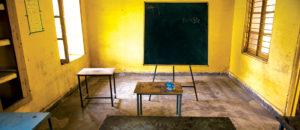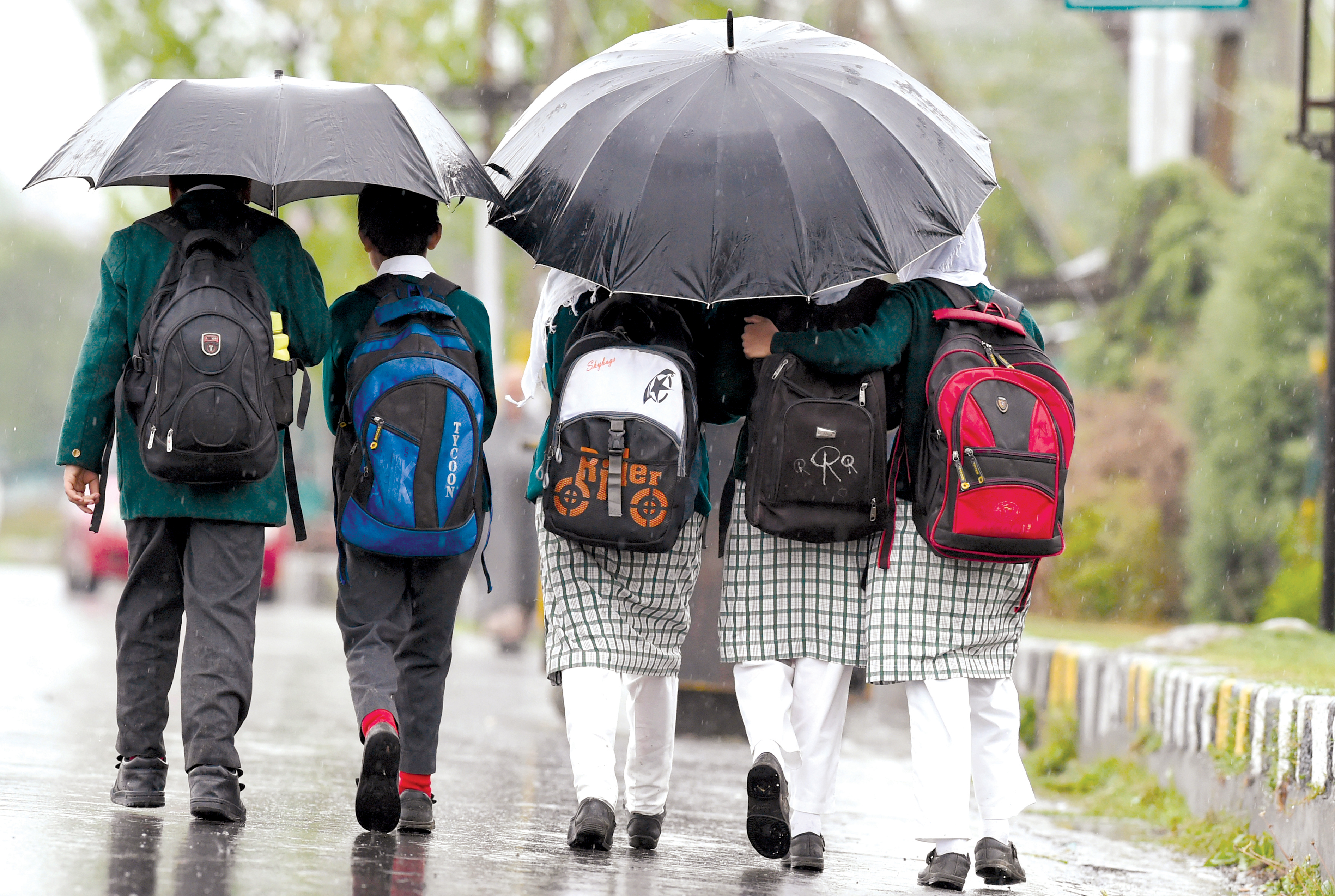The education sector has taken a major hit in ‘Naya Kashmir’, and students are worried about their futures
The idea of bunking classes once in a while, or not attending school to have a lazy, carefree day or two, is fun for students in a “normal” society. But in Kashmir, things aren’t normal. It’s been over 100 days since Article 370 was abrogated on August 5, and students are finding this state of affairs traumatising.
“There is a limit to fun. This is the height of boredom,” says 13-year-old Fayez, the irritation palpable in his tone, when asked if he enjoys being away from his classroom and spending time at home. Fayez has restricted to his home in a government flat in Srinagar since the first week of August. Now, he’s excited about the Class 8 Kashmir Board exam, which has just begun. The idea of being able to see his friends and have a physical conversation later beats the examination paper stress.
Students like Fayez appearing for their Class 8, 10, 11 and 12 Board Exams want their parents to allow them some time after their papers to simply “hang out” with friends on campus — a rare luxury.
The local administration announced the opening of schools and colleges across the Valley two months ago. But with public transport yet to ply regularly and prepaid mobile phone connections not working, parents are worried about their children’s safety, and do not want them to head to classrooms. With the concern of protests breaking out due to the volatile security situation, school managements too do not want to undertake the risk. Instead, they’ve been framing home assignments for students which now forms the basis for grading for final results instead of examinations.
Add to all this the woes of untimely snowstorms, Internet clampdown, and the heavy presence of armed forces and militancy, especially in South Kashmir — the education sector has taken a major hit so far in “Naya Kashmir”.
In reply to a question in the Lok Sabha last Tuesday on the average attendance in Kashmir schools since August 5, the government said that at present, the attendance of students stands at 99.7 per cent during the ongoing examinations. “Initially the attendance of the students was thin which gradually picked up,” said the written response by minister of state for home, G Kishan Reddy. This despite the fact that educational institutes are still visibly closed on the ground for classes other than those taking the board exams.
Bushra is a student of Class 7 in a private school in Shopian. Her favourite subject is English and she gets emotional when she talks about how much she misses her 9 am to 3 pm school routine.
“We have suffered a lot because of the shutdowns as we are unable to complete our curriculums,” she says. “The higher you go, the lessons are tougher. And if you do not know what to study in your present class, then it will adversely impact your next academic session.”
Bushra adds, “We are getting assignments in school as of now. I have cousins at home who guide me. But [my] cousins also have to study themselves, so they cannot afford to give me dedicated lessons. It is not the same as being in school.”
Like Fayez, she finds life “boring” now. “In school we have friends to talk to, teachers to discuss issues with. But in our homes, our parents have their own work and hardly any time for us.”
Anahira, a public relations officer for a private school in Shopian, tells Newslaundry she grew up in Srinagar in the 1990s during the outbreak of militancy. She recalls that even in those dark days, schools would occasionally close only for a day or two. But today, the frequent and prolonged closure of schools, forced by the political situation in the Valley, seems to be the new normal, she says. For example, in 2016, following the death of Hizbul Mujahideen commander Burhan Wani, schools closed in July and opened only around March 2017, completely scrambling the academic session.

“Schooling is a must for all students. At home, you do not get the environment one gets in school,” Anahira explains. “All other sectors are affected but the education sector is the worst affected by the situation these days in Kashmir. Children are impacted and suffer from anxiety and mental depression.”
When asked how hard it is for children growing up in conflict zones, Anahira says it’s “difficult” being a child, not just in Shopian, but in South Kashmir. “We are not able to provide the right environment to nurture the mental abilities of the children. Some take to stone-pelting. All the children in the Kashmir Valley are suffering.”
Outside Rainbow International Educational Institute, a leading institution in Shopian, apple boxes are being loaded onto small ferry trucks. The school premises are draped in a blanket of white. Nearly a dozen school buses queue up in the snow outside. They haven’t ferried children since August 5. One or two students trickle through the gates to collect assignments from the school management.
Sajjad Ahmed Khan is the managing director of Rainbow International Educational Institute, which was established in 2012 and has about 2,200 students. He’s worried about the future but hopes things will limp back on track soon.
“We face threats and the education sector is a prime target. We cannot sacrifice kids to hartals (protests). We have to be very careful about,” he cautions. He adds, “There may be chaos and confusion in the minds of students, leading to some protests…There was even confusion if board examinations would be held or not.”
In Shopian town, many young boys shy away from speaking on camera. Heavy search operations are on in a nearby village with reports of an ongoing encounter between militants and the Army. Cordons, concertina wires and body searches every few metres is a part of daily life in this area of Kashmir, considered a hotbed of militancy.
For many youth who self-study at home, the Internet was a solace. A convenient option was to order study materials online and research, especially for those gearing up for competitive exams. With that gone too, young students question what their future will hold.
“There is constant fear and I cannot concentrate on studies,” says Arshad, a postgraduate student of economics at Kashmir University. “I suffer from depression. If development happens on the ground and the promise of ‘Naya Kashmir’ is delivered, it will be good.” He alleges he has been beaten up many times by security forces for no fault of his.
Sheezan is writing his Class 11 Board Exams. He wanted to prepare for the Kashmir Administrative Services but after the reorganisation of the state into Union Territories, he is unsure if the IAS will be his calling.
“We face constant cordons here, midnight raids happen in villages. Shops may open and private vehicles are plying, but this is not normalcy,” he says. “With the political situation on top of our minds, all of us are very disturbed.”
Yamin Asir, a 20-something civil services aspirant, believes militancy can end if Delhi delivers on its promises of development and employment to youth. But he questions the justification for the continued clampdown on the Internet by a “mighty surveillance” state.
“Earlier, we would download our syllabus and schedule via the Internet,” he explains. “Now we have to go to Srinagar to the District Collector’s office or the National Informatics Centre. Before, we could order study material online, coach ourselves at home — but we cannot do that anymore.”
His complaints are echoed by hundreds and thousands of other students in Kashmir today, who are now questioning if “bunking classes” will ever be a luxury for them instead of closed educational institutes being the new normal.
www.newslaundry.com





